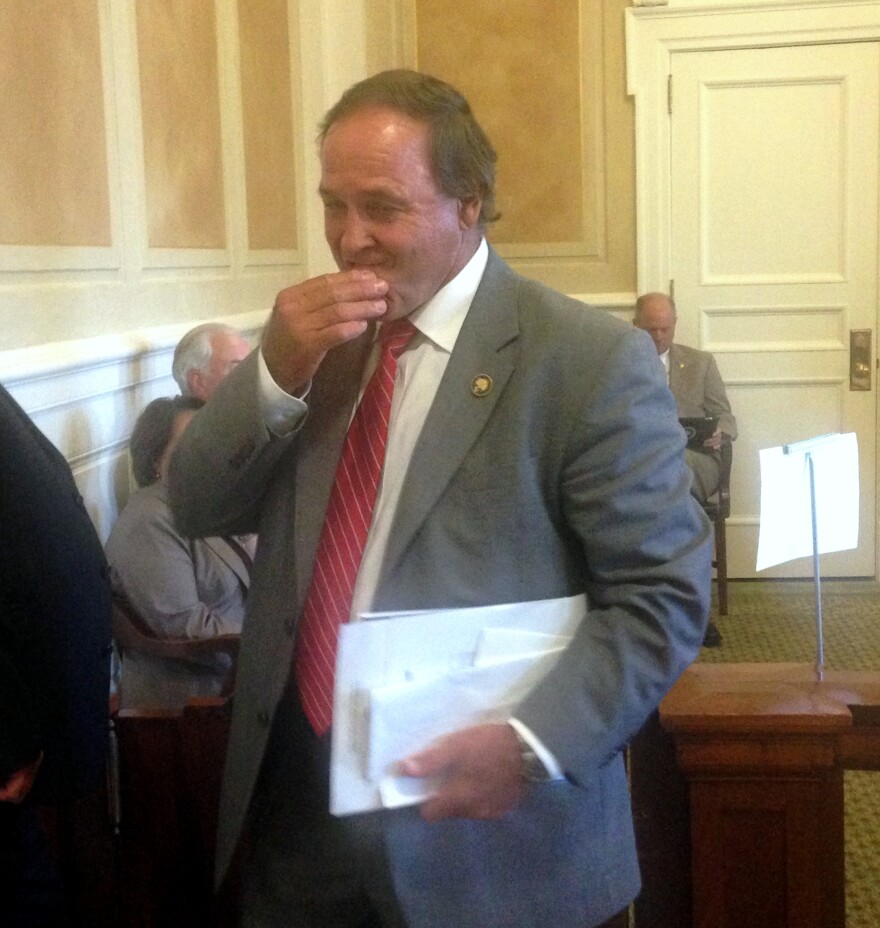An $87 million economic incentive package to bolster Lockheed Martin’s bid for a federal defense contract in south Arkansas is headed for a final vote Thursday with broad support, while an attempt to move the state's primary elections slowly overcame a bastion of resistance in an amended form. The change from late May to early March would expire after just one election cycle, 2016.
Economic Development
Identical versions of the bond issue passed out of the state' House and Senate by wide margins. The vote was 96-0 in the House and in the Senate 31-3. Republican Representative Matthew Shepherd sponsored the House version of the legislation that is projected to directly contribute to the creation of nearly 600 new jobs at Lockheed Martin’s operations east of Camden, if the defense contractor wins a federal contract.

“This is, I think, a really historic opportunity for the state of Arkansas. Obviously it’s a tremendous opportunity for south Arkansas. Perhaps no other community in the state has suffered such an economic downturn as Camden has over the past 20 years,” said Shepherd.
He said the loss of a paper mill started a downward spiral, with industries leaving the town.
Lockheed Martin would have a 25 year agreement with the state with claw-back provisions based on wage and employment benchmarks for the manufacturing of 55,000 of the Department of Defense’s next-generation of Humvee-like vehicles known as the Joint Light Tactical Vehicle (JLTV). Lockheed Martin is in competition with two other defense contractors.
The bond package largely goes toward sharing the cost of updating Lockheed Martin’s Camden facility. Some dollars do go toward a job training program at South Arkansas University in Magnolia and to finance the bonds.
Republican Bart Hester of northwest Arkansas was one of just three of the state’s 135 legislators to oppose the state’s economic development investment.
“If we would just get out of the way and level the playing field 500 jobs is nothing to come by in Arkansas.” Hester contended using the money in a different way could be more productive, “$87 million in less taxes or less regulation, or less whatever we can do to get out of the private sector’s way. Again, I feel like we’re no match for them and we can let the private sector handle our economic needs in Arkansas.”
Senator Bobby Pierce represents the district in question. The Democratic bill sponsor said he doesn’t necessarily like the idea of state incentives for private companies either, but said they are now expected and necessary.
“There’s no use changing the game now. We’ve done the game; let’s finish the game with what we’ve got. If we would have started that way with all our business yes it would probably be better, maybe, but we haven’t done that,” said Pierce.
Final votes on the identical pair of House and Senate bills are exepcted in both chambers Thursday.
PRIMARY ELECTION MOVE
A bid to move-up Arkansas’s primary date is advancing in fits and starts through the state Legislature. The House approved a version of the bill Wednesday moving the primary from May to March. Meanwhile an identical Senate version initially stalled in the State Agencies committee after two 4-4 partisan line votes in two days - a rare spot of Democratic sway in the Legislature. However, in an early evening re-working of the legislation the primary date change was amended to expire after just one election cycle, 2016.
(b) The provisions of this act are temporary and expire on December 31, 2016. (c) On and after December 31, 2016, the provisions of law suspended by this act shall be in full force and effect.
That version passed through the previously grid locked committee. It passed the Senate 28-6, picking up four formerly opposed Democrats and the presence of two Republicans absent for earlier votes in the afternoon.
But earlier in the day before the amendment was constructed Republicans attempted an alternative route. A motion was made to use an uncommon procedural tactic to bypass the traditional committee process and pull the deadlocked primary bill straight to the floor.
Democratic Senator Joyce Elliott of Little Rock, who sits on the State Agencies committee, said during floor debate that the procedural move is “poisonous” for circumventing the committee process.
“This is an anti-democratic, small “d” democratic move. We don’t have to do this. The institution of this body is more important than the will that we are about to exercise,” said Elliott.
But Republican committee chair Eddie Joe Williams rejected Democratic accusations the move short-changes the democratic process.
“I wouldn’t say that. I would say the rule provides for it. It’s very democratic. We have a set of rules and the majority rules. In this case, there’s nothing not democratic about it. The rule is available, though rarely used,” said Williams.

Senate Republicans and bill sponsor Gary Stubblefield succeeded in the motion which required only a simply majority. Senate President Jonathan Dismang opted to not vote on the motion. The procedure pulled the bill to the floor.
But to waive a two day wait period the Republican voting bloc needed to suspend the rules. This time, with Senator Dismang leading the charge, an attempt to suspend the rules to avoid the two day wait failed.
Minus two absent Republican Senators, proponents of immediate consideration couldn't muster the two-thirds majority needed.
Companion bills moving the fiscal session of the Legislature to accommodate the primary shift from late May to March 1st to a so-called SEC Primary, intended to elevate the influence of Southern states in the presidential primary process, also advanced in both chambers of the General Assembly.
Versions from both chambers now head to each other for votes Thursday.






